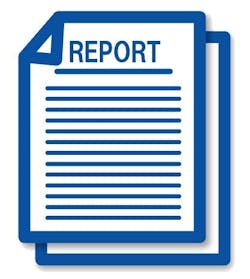New Report Highlights Successful Agriculture & Water Utility Partnerships
A white paper entitled Collaborating for Healthy Watersheds, highlighting nine successful municipal-agricultural collaborations that address water quality issues at the watershed level, was released by the National Association of Clean Water Agencies (NACWA), AGree and the U.S. Water Alliance. The three organizations collaborated on the effort, which describes partnership models between municipalities and farmers that can lead to progress on attaining water quality goals and reducing nutrient pollution in our nation's surface waters.
The traditional approach of building more and more advanced treatment facilities can result in an economic burden to many communities. Therefore, both water and wastewater utilities have looked for more cost-effective solutions to create healthy watersheds and good water quality. One of the most promising approaches is to look upstream in the watershed to see if there are ways to prevent nutrients and other pollutants from being released into waterways in collaboration with agriculture and other partners.
The nine highlighted projects discussed in the white paper include:
- New York: New York City's Watershed Protection Program and Watershed Agricultural Council;
- Oregon: Tualatin River Enhanced Conservation Reserve Enhancement Program;
- Ohio: The Great Miami River Watershed Water Quality Credit Trading Program;
- Wisconsin: Yahara Watershed Improvement Network (WINs);
- California: Fresno-Clovis Regional Water Reclamation Facility (RWRF) Agricultural;
- Illinois: Lake Springfield Nitrogen Management Program;
- California: Central Valley Salinity Alternatives for Long-Term Sustainability (CVSALTS);
- Florida: Northern Everglades and Estuaries Protection Program - Payment for Environmental Services; and
- Texas: Arroyo Colorado Watershed Protection Plan.
The White Paper can be downloaded. Please direct any questions to Pat Sinicropi, NACWA; Mark Jacobs, AGree; or Lorraine Koss, U.S. Water Alliance.
Source: National Association of Clean Water Agencies
